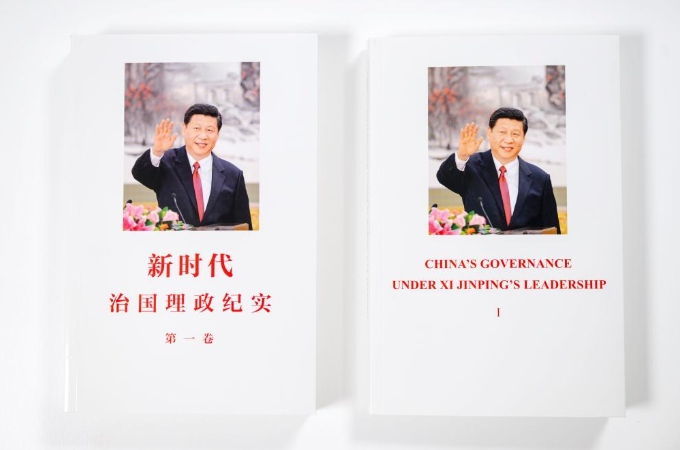Cambodia grapples with growing challenge of online information
Source: China Daily | 2024-12-23 | Editor:Reena
Two-thirds of social media content creators do not verify whether the information they post is accurate, according to a UNESCO report published late last month, with Cambodia one of the latest countries facing the growing challenge of online content.
The report, which surveyed 500 online content creators from 45 countries and territories through an online poll, showed that 73 percent of creators expressed a desire for training on fact-checking. Twenty creators were also interviewed in-depth to understand their practices and challenges.
The findings showed that they struggled to evaluate the credibility of the information they encountered online before sharing it. About 42 percent of respondents admitted they relied on the number of "likes" and "shares" a piece of content received to determine its accuracy.
The survey also highlighted that 59 percent of creators were unfamiliar with legal frameworks and international digital regulations. Just over half said they were aware of training programs on the topic, but only 13.9 percent expressed an interest in attending such sessions.
A lack of knowledge about fact-checking processes left some content creators vulnerable to legal uncertainties, potentially leading to sanctions or prosecution in some countries.
Audrey Azoulay, UNESCO director-general, said that digital content creators have acquired an important place in the information ecosystem, engaging millions of people with cultural, social or political news.
"But many are struggling in the face of disinformation and online hate speech and calling for more training. As part of its mandate for media and information literacy, UNESCO will support them through the first-ever global training course," she said.
Local perspective
Nop Vy, executive director of the Cambodian Journalists Alliance Association, said UNESCO's findings reflected the situation locally.
He estimated that only 30 percent of Cambodians possess digital literacy, a low rate that raised concerns about the dissemination of unchecked or false information by content creators.
"Fact-checking is not easy, especially in Cambodia," he said, adding that many content creators and social media influencers lack the capacity and tools to fact-check information.
He also said that some creators focus on gaining fame without considering the potential consequences of their content.
Chhort Bunthang, a researcher specializing in culture, education and tourism, said that Cambodia produces a variety of content, including original and copied materials.
While some content is educational and well-researched, others promote misinformation or incite immorality in society.
"There is some content that is outright fabricated, like eating cow dung or shoes, which holds no value for society," he said.
He further highlighted content addressing societal and political issues, emphasizing that such topics should be based on facts rather than nationalist sentiments or anger, which can destabilize society.
Bunthang also criticized content that sensationalizes violence or sexual misconduct without addressing the consequences of such actions.
"Some videos merely show perpetrators committing acts of violence or harassment without educating viewers about the repercussions," he said.
Bunthang said that while some health-related content is beneficial, others lack credible sources, posing potential risks to users, particularly those with preexisting conditions.
Tep Asnarith, spokesperson for Cambodia's Ministry of Information, said that digital tools are becoming increasingly integral to daily life in the country, demonstrating its access to internet services.
However, he acknowledged that the rise of digital technology has also brought challenges, including the rapid spread of misinformation through social media platforms, with posts often faster than traditional, fact-checked media outlets.
"Unethical content on social media undermines trust in professional journalism and negatively impacts traditional media outlets," Asnarith said.
Over 1,400 online media outlets are officially registered with the ministry but the number of content creators exceeded the figure.
Asnarith urged online content creators and social media users to uphold societal ethics, public order and respect for individual rights and dignity, while preserving Cambodia's cultural values.
"Social media users and content creators must adhere to professional and societal ethics in this digital media landscape. Unfortunately, some individuals, driven by personal gain or popularity, violate these principles," he said.
As an example, he mentioned the publication of violent or graphic images that invade privacy and dignity, potentially causing harm and unnecessary suffering.
The Phnom Penh Post, Cambodia
You May Like
-
Lao capital aims to become green city by 2030
Laos has unveiled the Green City Action Plan for 2023-2030 in its capital Vientiane, with the goal of transforming the city into a sustainable, climate-resilien...
InKunming 2024-11-28 -
Summit on mine-free world kicks off in NW Cambodia
The Siem Reap-Angkor Summit on a Mine-Free World was held here in northwest Cambodia's Siem Reap province on Monday, discussing actions to build a safer and mor...
InKunming 2024-11-25 -
Indonesia freezes over 7,000 bank accounts linked to online ...
Indonesia has frozen some 7,500 bank accounts reportedly linked to bookies and syndicates organizing gambling operations, a senior official of the country's cen...
InKunming 2024-11-22 -
Cambodia targets 70 pct clean energy by 2030: minister
Cambodia aims to increase its renewable energy share to 70 percent by 2030 from more than 62 percent at present, Minister of Mines and Energy Keo Rattanak said ...
InKunming 2024-11-22 -
Pakistani scholar plants dreams with soybeans
Editor's note: China Daily presents the series Friends Afar to tell the stories of people-to-people exchanges between China and other countries. Through the viv...
InKunming 2024-11-14 -
More young Indonesians banking on stock market
Success stories among their peers and a plethora of user-friendly investing apps are luring more young Indonesians to the stock market, but some are learning th...
InKunming 2024-11-14 -
Indonesia's economy grows 4.95 pct in Q3
Indonesia's economy grew at a slower rate of 4.95 percent year-on-year in the third quarter of this year, down from the 5.05 percent growth recorded in the seco...
InKunming 2024-11-06 -
Feature: China-aided airport to enhance connectivity, spur e...
Khalid Kakar, airport manager of Gwadar Airport in Pakistan's southwestern Balochistan province, stood attentively, observing the final touches on the newly con...
InKunming 2024-11-05 -
Cambodian province woos Chinese investors
Cambodia is looking to attract more Chinese investors to its Preah Sihanouk Province for high-quality development, as it transforms the coastal region into a mu...
InKunming 2024-11-05 -
Thai jeweler's seven-year journey of opportunities at CIIE
It is a common scene for Li Jiachun, a 49-year-old jeweler to see jewelry enthusiasts from all over the world exploring the jewelry trading center in Bangkok, ...
InKunming 2024-11-05







